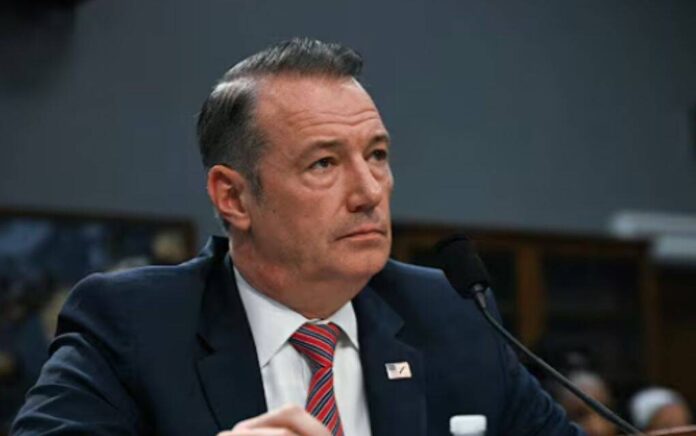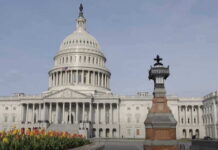
America is filled to the brim with illegal immigrants. And Trump is fulfilling his promise.
Now the Trump admin defied an activist judge by doing this to illegal immigrants.
Trump Administration Executes Deportation to South Sudan
The Trump administration announced on Wednesday that it had deported eight individuals, described as murderers, rapists, and other serious offenders, to South Sudan. The group, identified as illegal immigrants, was transported on a dedicated flight.
This action follows the administration’s efforts to address cases where the deportees’ countries of origin refused to accept their return, requiring the U.S. to identify an alternative receiving nation.
Overview of the Deportation
The U.S. Department of Homeland Security (DHS) organized the deportation of eight individuals labeled as serious criminals to South Sudan. Acting Director of U.S. Immigration and Customs Enforcement (ICE) Todd Lyons emphasized the threat posed by these individuals, stating, “These are the ones that you don’t want in your community.”
The operation was necessitated by the refusal of the deportees’ home countries to accept them, prompting DHS to arrange for South Sudan to receive them.
Destination and Logistics
While South Sudan was the immediate destination for the flight, DHS officials indicated that it might not be the final stop for the deportees. They declined to provide further details about potential onward transfers or the specific arrangements made with South Sudan. This lack of clarity reflects the complexity of coordinating deportations when standard repatriation options are unavailable.
The deportations took place under the scrutiny of a federal judge in Massachusetts, Brian Murphy, who issued orders requiring DHS to maintain custody of the deportees while he reviews the legality of the removals. These orders impose strict controls on the deportation process, ensuring judicial oversight. DHS confirmed it is adhering to the judge’s directives, but tensions have emerged over the extent of judicial involvement in the operation.
DHS Response to Judicial Intervention
DHS expressed frustration with Judge Murphy’s involvement, arguing that it oversteps judicial authority. Assistant Secretary Tricia McLaughlin stated, “It is absolutely absurd for a district judge to try to dictate the foreign policy and national security of the United States of America.”
She further criticized the judge for “trying to force the United States to bring back these uniquely barbaric monsters,” highlighting the administration’s view that the deportees pose a significant risk.
A hearing before Judge Murphy was set for Wednesday morning to further examine the deportation process.
This session will assess whether the removals comply with legal standards and could influence how similar cases are handled moving forward. The outcome may clarify the balance between executive action and judicial oversight in immigration enforcement.
The deportation underscores the logistical hurdles faced by DHS when home countries refuse to repatriate their citizens. The choice of South Sudan as a destination highlights the administration’s efforts to find viable solutions for deporting individuals deemed undesirable, despite international complexities.
#
Broader Implications
The ongoing dispute between DHS and the judiciary reflects broader questions about the scope of federal authority in immigration policy. As the Massachusetts court continues its review, the case may set precedents for how deportation operations are conducted under judicial supervision.



















